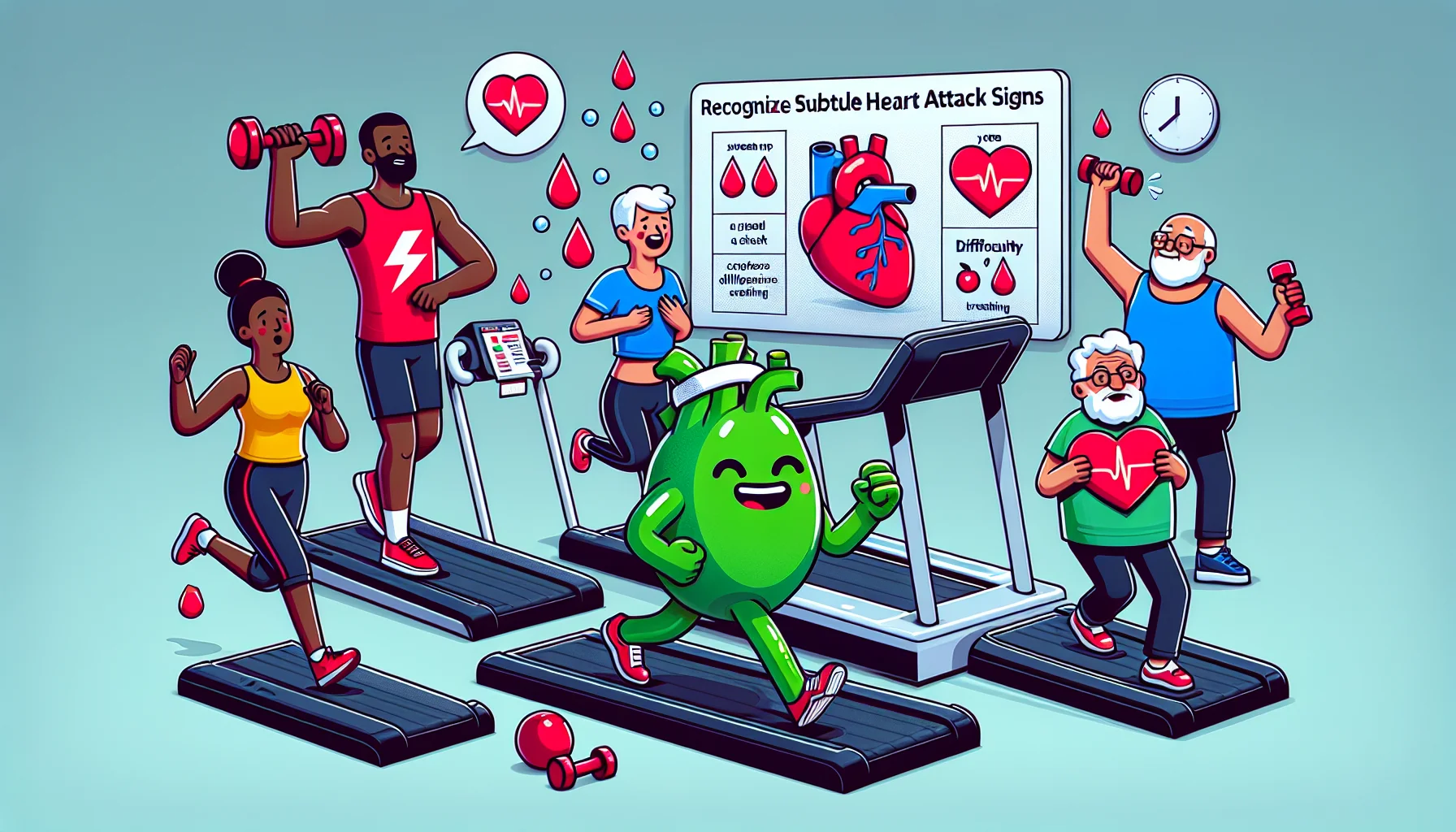Recognize Subtle Heart Attack Signs for a Healthy Lifestyle Quiz
Test Your Knowledge
Question of
Recognize Subtle Heart Attack Signs for a Healthy Lifestyle
Understanding and recognizing the subtle signs of a heart attack can be a crucial aspect of maintaining a healthy lifestyle. Often, heart attacks present themselves through less obvious symptoms that can easily be overlooked. By being aware of these less prominent signs, individuals can seek timely medical intervention, potentially saving their lives and improving their overall health. Early detection and treatment of heart conditions not only contribute to a longer life but also enhance the quality of life by preventing serious complications. Therefore, educating oneself about these subtle signs is an essential step towards a heart-healthy lifestyle.
Understanding Heart Attacks
A heart attack, medically known as a myocardial infarction, occurs when the flow of blood to the heart is blocked. This blockage is most often a result of a build-up of fat, cholesterol, and other substances, which form a plaque in the coronary arteries that feed the heart. When a plaque breaks, a blood clot forms around the plaque, further blocking the flow of blood to the heart muscle. If the blood supply is cut off for too long, it can cause damage or death to part of the heart muscle. This event can lead to significant health complications or even be life-threatening. Understanding the causes, symptoms, and treatment options for heart attacks is crucial for prevention and effective management of this serious condition.
Common Heart Attack Symptoms
- Chest pain or discomfort
- Feeling weak, light-headed, or faint
- Pain or discomfort in the jaw, neck, or back
- Pain or discomfort in one or both arms or shoulders
- Shortness of breath
- Nausea or vomiting
Subtle Heart Attack Signs
- Unusual fatigue
- Shortness of breath
- Mild discomfort in the chest, arm, or jaw that goes away and comes back
- Nausea or vomiting
- Sweating for no apparent reason
- Lightheadedness or sudden dizziness
- Back or neck pain
Risk Factors for Heart Attacks
Several risk factors can increase the likelihood of experiencing a heart attack. These include lifestyle choices, medical conditions, and certain genetic predispositions. Key risk factors include smoking, high blood pressure, high cholesterol levels, diabetes, obesity, and a sedentary lifestyle. Additionally, age, family history of heart disease, and stress can also contribute to the risk. It's important to manage these risk factors through a healthy diet, regular physical activity, and, when necessary, medication to reduce the chances of a heart attack.
Preventing Heart Attacks
To prevent heart attacks, it's crucial to adopt a healthy lifestyle. This includes maintaining a balanced diet rich in fruits, vegetables, whole grains, and lean proteins. Regular physical activity, aiming for at least 150 minutes of moderate aerobic exercise or 75 minutes of vigorous activity each week, can significantly reduce heart attack risk. Avoiding tobacco and limiting alcohol intake are also key preventive measures. Furthermore, managing stress, getting enough sleep, and regular health screenings to monitor blood pressure, cholesterol levels, and diabetes can help keep your heart healthy and reduce the risk of heart attacks.
Healthy Lifestyle Choices to Prevent Heart Attacks
- Maintain a healthy diet rich in fruits, vegetables, whole grains, and lean proteins.
- Exercise regularly, aiming for at least 150 minutes of moderate aerobic activity or 75 minutes of vigorous activity each week.
- Avoid smoking and using tobacco products.
- Limit alcohol consumption to moderate levels.
- Maintain a healthy weight through diet and exercise.
- Manage stress through techniques such as meditation, yoga, or deep breathing exercises.
- Monitor cholesterol levels and blood pressure, and take steps to keep them in a healthy range.
- Get enough sleep, aiming for 7-9 hours per night.
- Avoid or limit consumption of saturated fats, trans fats, and added sugars.
- Stay hydrated by drinking plenty of water throughout the day.
Medical Treatments for Heart Attacks
Medical treatments for heart attacks aim to restore blood flow to the heart and prevent further damage. Initial treatments may include medications such as aspirin, thrombolytics to dissolve blood clots, antiplatelet agents, and anticoagulants to prevent new clots from forming. Beta-blockers are used to reduce heart workload and pain, while ACE inhibitors can lower blood pressure and stress on the heart. In some cases, procedures like angioplasty and stenting are performed to open blocked arteries. Coronary artery bypass grafting (CABG) might be recommended for severe blockages. Post-treatment, cardiac rehabilitation and lifestyle changes are crucial for recovery and prevention of future heart attacks.
Heart Attack Survival Rates
| Factor | Survival Rate |
|---|---|
| Under 45 years old | 92% |
| 45-54 years old | 88% |
| 55-64 years old | 83% |
| 65-74 years old | 76% |
| Over 75 years old | 68% |
| Male | 84% |
| Female | 90% |
| Excellent overall health | 93% |
| Good overall health | 85% |
| Fair overall health | 75% |
| Poor overall health | 57% |












